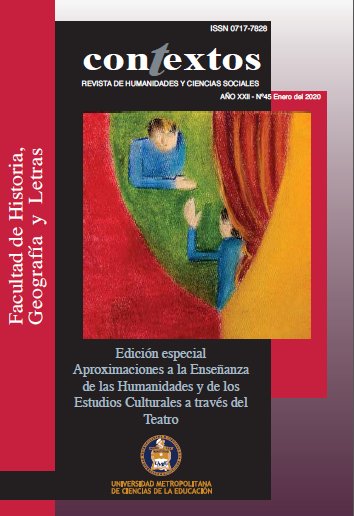Main Article Content
Jul 8, 2019
Abstract
This article presents a model for a course on contemporary Spanish theater focused on the theme of oppression. The course is structured around four representative plays from the 20th and 21st centuries: Condemned Squad (1956) by Alfonso Sastre, The Foundation by Antonio Buero Vallejo (1974), The Lost Children (2005) by Laila Ripoll, and Himmelweg (Way to Heaven) (2005) by Juan Mayorga. Although theater can provide important contextual insights, it is often disregarded in literary studies. This course allows students to delve into Franco’s dictatorship –one of the key periods in the history of Spain— in order to understand the different dynamics of oppression that operate during totalitarian regimes and in their aftermaths. The class challenges students by requiring them to create their own play on oppression. This experiential learning component stimulates students’ creativity and commits them to develop a critical position vis-à-vis the different nuances of such a complex and urgent theme.
Downloads
Policies for open access journals
Authors who publish here accept the following terms: Authors will keep their copyright and will guarantee the journal the right to the first publication of their work, which will be subject to the Licence of Creative Commons acknowledgement, which allows for the use of this material only if the authorship is credited and the original source is acknowledged (the journal’s URL), and if it is not used with commercial ends and with any derivations of the original work.
Authors may adopt other non-exclusive license agreements of distribution of the published version (e.g. to save it onto a digital institutional archive or publish it in a monographic volume) only if the initial publication of this journal is indicated.
It is permitted and recommended for authors to divulge their work on the Internet (e.g. institutional digital archives or webpage) before and during the submission process, which may lead to interesting exchanges and increase the citations of the publication. (See Open Access Effect).






